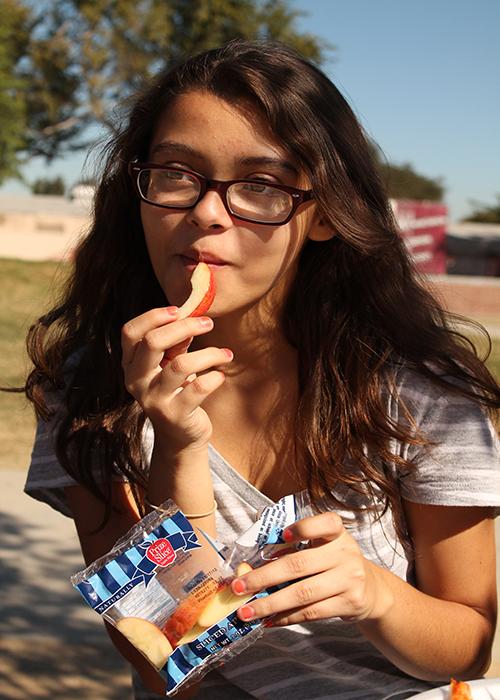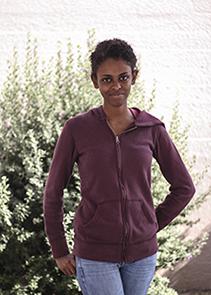As part of a new regimen, the Downey Unified School District has implemented healthier foods to offer to students at all school campuses within the city.
Because of the Healthy Kids Hungry Act of 2010, schools must monitor the amount of grain and fat offered for students. Obesity has become a serious problem that the country has wanted to control; the act would attempt to reduce the obesity statistics within schools. Downey High is doing their part by using whole wheat bread on foods, such as for cheeseburgers and hot dogs. Along with grain products being implemented, more fruits and vegetables are available for the students to eat. It has become mandatory for students to take at least one fruit or vegetable, such as an apple or a salad. New foods, such as sweet potato fries and protein salads with lettuce, cheese and meat, have been offered as healthier selections. Food supervisor Christine Woods from the school district believes that the students have had a positive reaction to the healthier foods.
“The students are really liking the individual salads we are offering,” Woods said. “We have always had a nice salad bar in the cafeteria.”
Lunch supervisor Betty Lukas tries to make sure that all the foods offered to the students are following district requirements.
“I think we follow the nutrition guidelines,” Lukas said. “We are putting a lot more wheat.”
Many students appreciated the new food options, favoring the school food over homemade lunch. Senior Julio Lopez has enjoyed the updated options, such as cheeseburgers and hotdogs on wheat bread.
“That’s all I eat,” Lopez said. “Hamburgers and cheeseburgers. I would choose that from anything else.”
Although the district believes that they have been serving healthy foods all along, the new changes have not impressed all students’ dietary preferences. Sophomore Brenda Alvizures has hopes to promote adopting more organic choices. Alvizures had become opposed to the school food, eventually confronting Mr. Houts to complain about the non-organic choices given to students; however, no changes have been made about her requests. As a result, Alvizures made a petition against the school nutrition. Regardless of the circumstances, she continues to do research on how to amend the food options.
“I’m still planning to research on how other schools got to get their school lunches to organic,” Alvizures said, “but I would like to get help from others to help me make a change.”
Even though the food at school may not be organic, there are other reasons for students to not consume the school’s lunch. Senior Candice Potvin cites her transition to vegetarianism as a reason to avoid the school’s food.
“I don’t eat school lunch because I don’t eat meat or drink milk,” Potvin said.
Although Potvin and Alvizures may be only a couple of people who object the school food, the majority of the student body has been exposed to the new changes; however, many of the fruits and vegetables have been left in the trashcan or scattered on the ground. Woods acknowledges this fact.
“That is our challenge,” Woods said. “A healthy trashcan benefits no one.”




